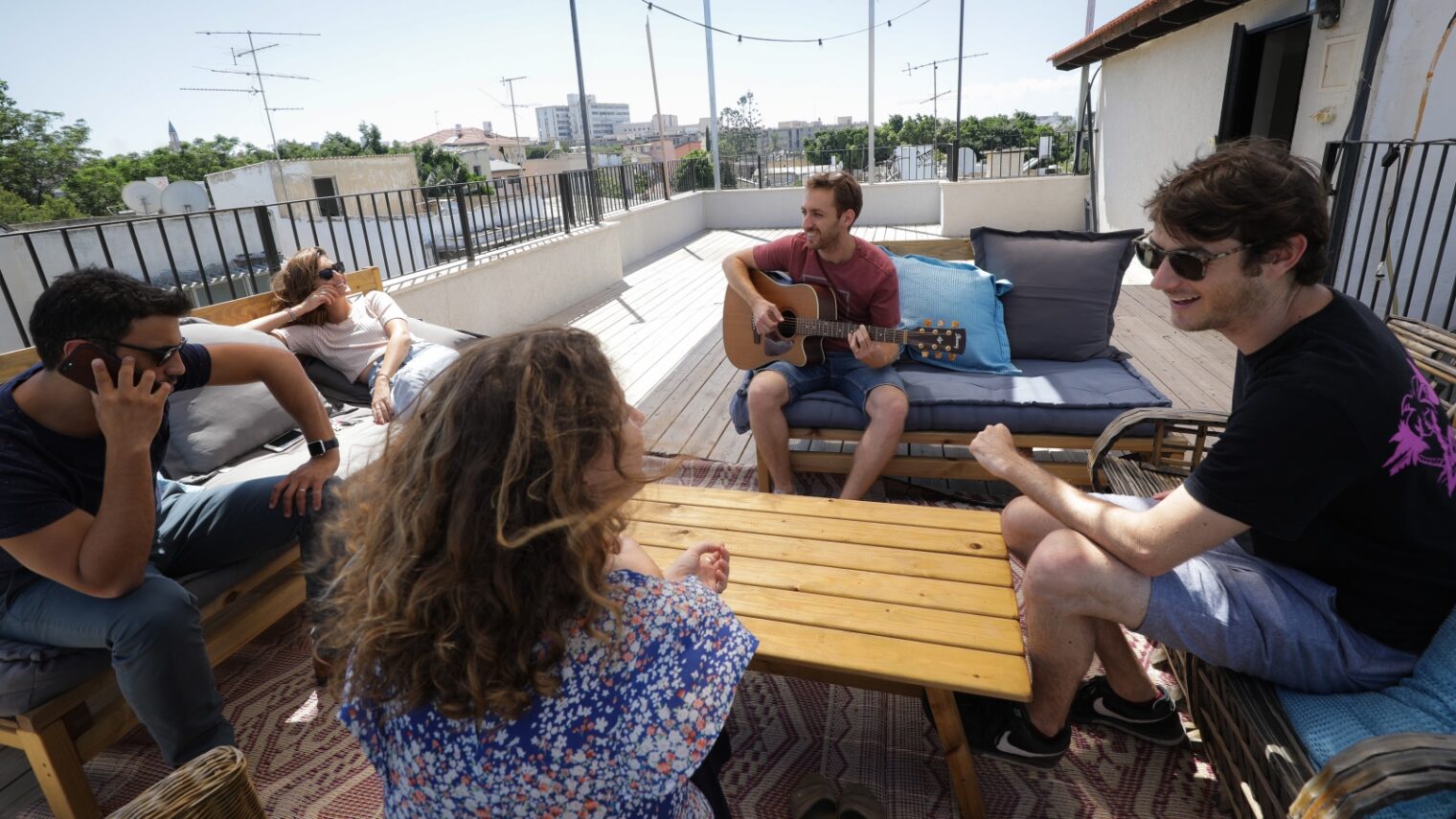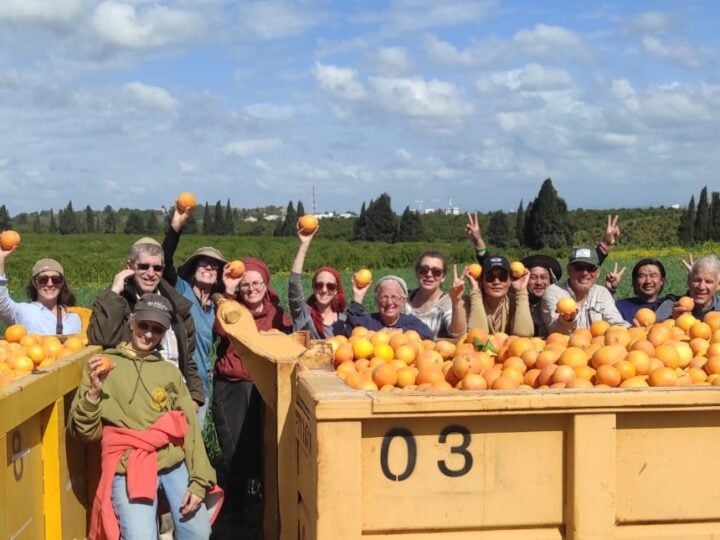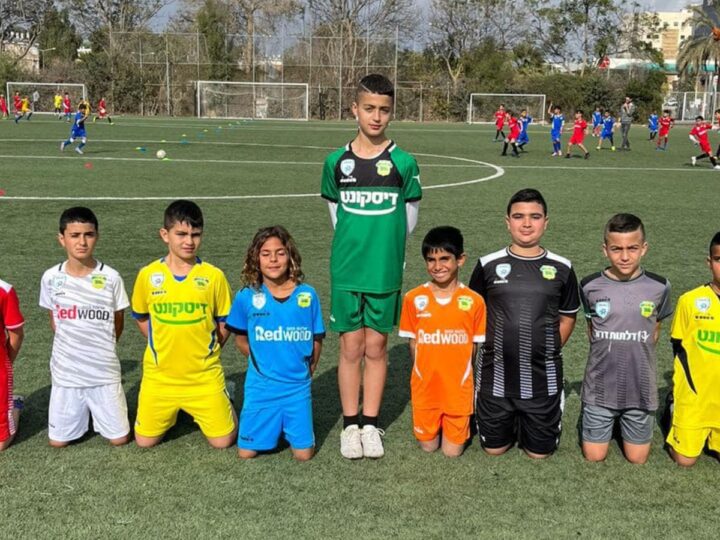In a time when urban environments are getting denser, costlier and lonelier, a young Israeli couple named Tal and Shlomi have found a true community in the fast-gentrifying Shapira neighborhood of South Tel Aviv.
They share an apartment with another couple in a building owned and managed by Venn, a novel for-profit enterprise started by three former army buddies as a way to make a social impact on urban real estate.
Shared workspaces and living spaces are very much in vogue, thanks largely to pioneering Israeli-American WeWork and WeLive founder Adam Neumann. Venn is expanding the concept to the neighborhood level.
Cofounders Or Bokobza, David Sherez and Chen Avni offer residential, commercial and communal spaces for rent within a cohesive neighborhood framework. Social connections are encouraged through a members’ app, community programs and events, and support for existing and new businesses.
Tal and Shlomi and the five other couples in their building – two per apartment — share a rooftop, music room, laundry room, 3D maker space and arts-and-crafts room. Tal, 31, is a management consultant who works in Venn’s co-working space some 150 meters from home.
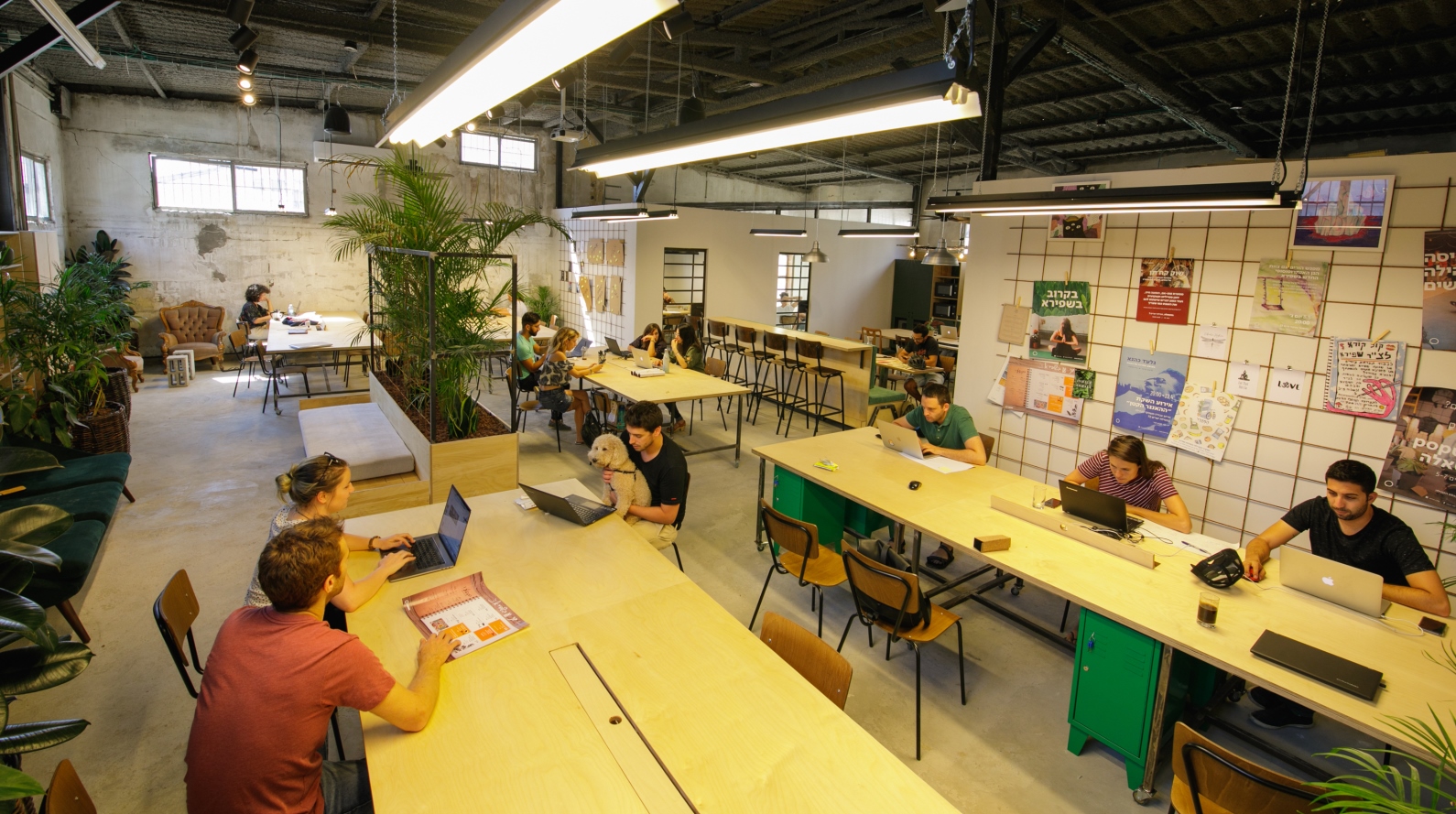
Tal says Venn membership “makes you feel like a social entrepreneur. Different people get different things from it. For me, it’s a significant stress reliever. I email someone at Venn the list of stuff that I want — please pick up my laundry, get me coffee from the local grocery store, vegetables from the guy around the block — and it gets to my house. I know all of these service providers.”
Five years ago, says Tal, Shapira had just one restaurant and a municipal community center. “Since Venn came in a lot of places opened and there’s been gentrification here in general. A lot of my friends moved to Shapira; not all of them live in Venn buildings. It’s like a movement.”

Based on the rapid success of Venn in Shapira, Venn found prominent investors and partners to help grow Shapira and start similar “urban neighboring” communities abroad in Friedrichshain (Berlin) and Bushwick (Brooklyn).
Across the three locations, Venn has about 350 members, employs 50-some people and manages 20 residential buildings with more than 1,000 units, plus several shared spaces.
“We have two streams of revenue: managing the real estate, and membership fees that people pay to access all the services of the community including workspace and events,” explains VP-Marketing Neta Gull, who came to Venn after six years at Google.
“The product looks different in each location. We don’t come in as a bunch of Israelis to Brooklyn or Berlin and tell people how they should live. Our product allows flexibility to respond to local needs and values.”
Three friends with a dream
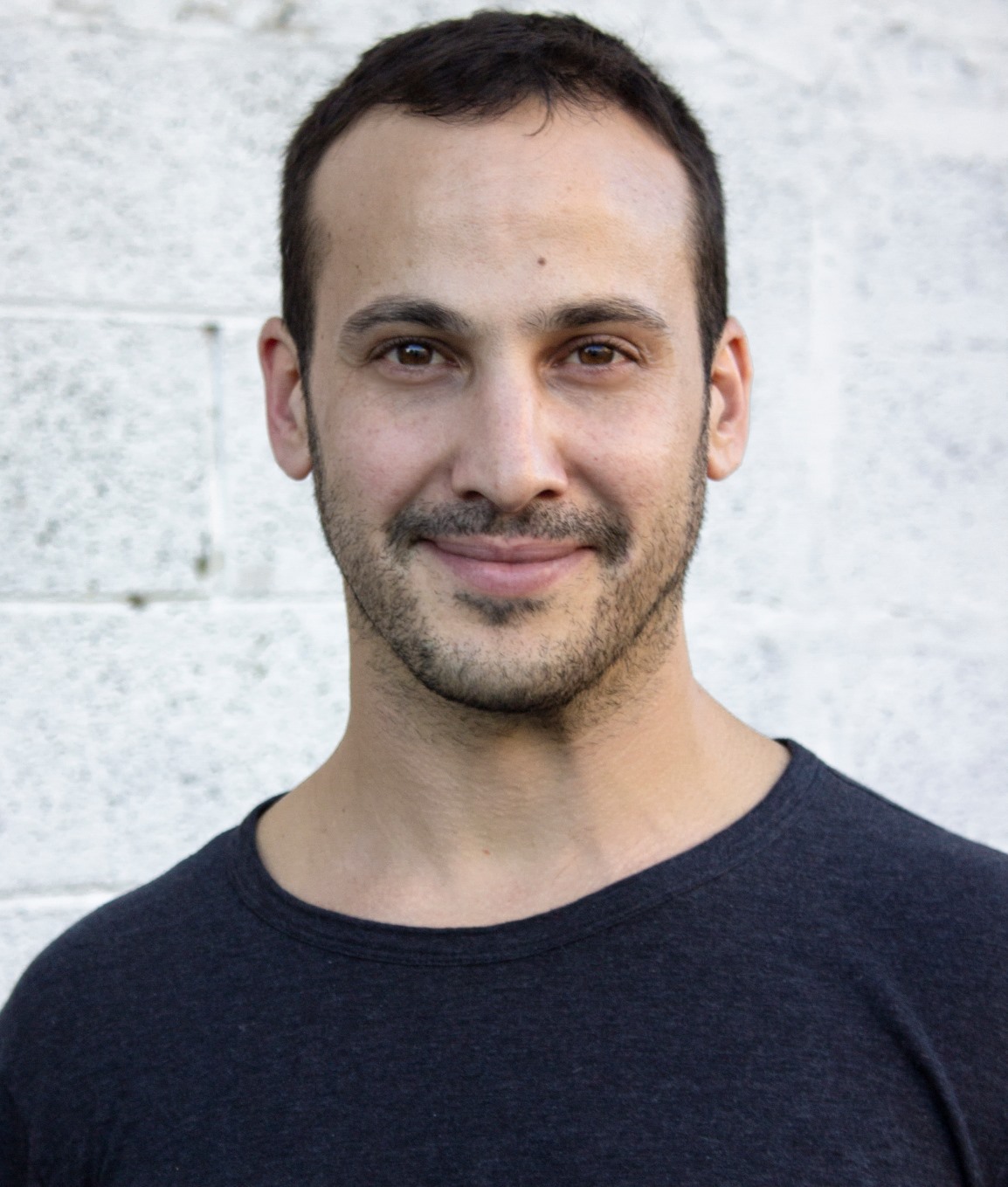
“The story of Venn grew organically for Or, David and Chen,” Gull tells ISRAEL21c.
“They served together as leaders in the elite army reconnaissance unit Sayeret Matkal and became really good friends. After university they went to live in Tel Aviv and wanted to stay together and raise families together — a fantasy that many good friends in their 20s have. They couldn’t find a way to make it happen in the center of Tel Aviv, so they looked how to solve the problem.”
In 2015 they found their answer in Shapira, a shabby southern neighborhood near the Central Bus Station that nevertheless had a village-like charm, complete with little houses, lemon trees and chickens strutting around.

“They moved here and renovated a very cool home, and then more friends came, and then David said, ‘There’s no coffee shop; let’s open one together.’ And then they thought of opening a workspace where they could all work together, and they bought a property and renovated it themselves,” Gull says.
“Another friend planted an urban farm on the coffee-shop rooftop for the neighborhood to use. An artist came and opened a gallery in 2016 in a cool space called the Red House. It’s become the neighborhood arts and cultural center.”
The trio brainstormed about how they could make their Shapira “beta” project replicable, sustainable and profitable without sacrificing any of the magic.
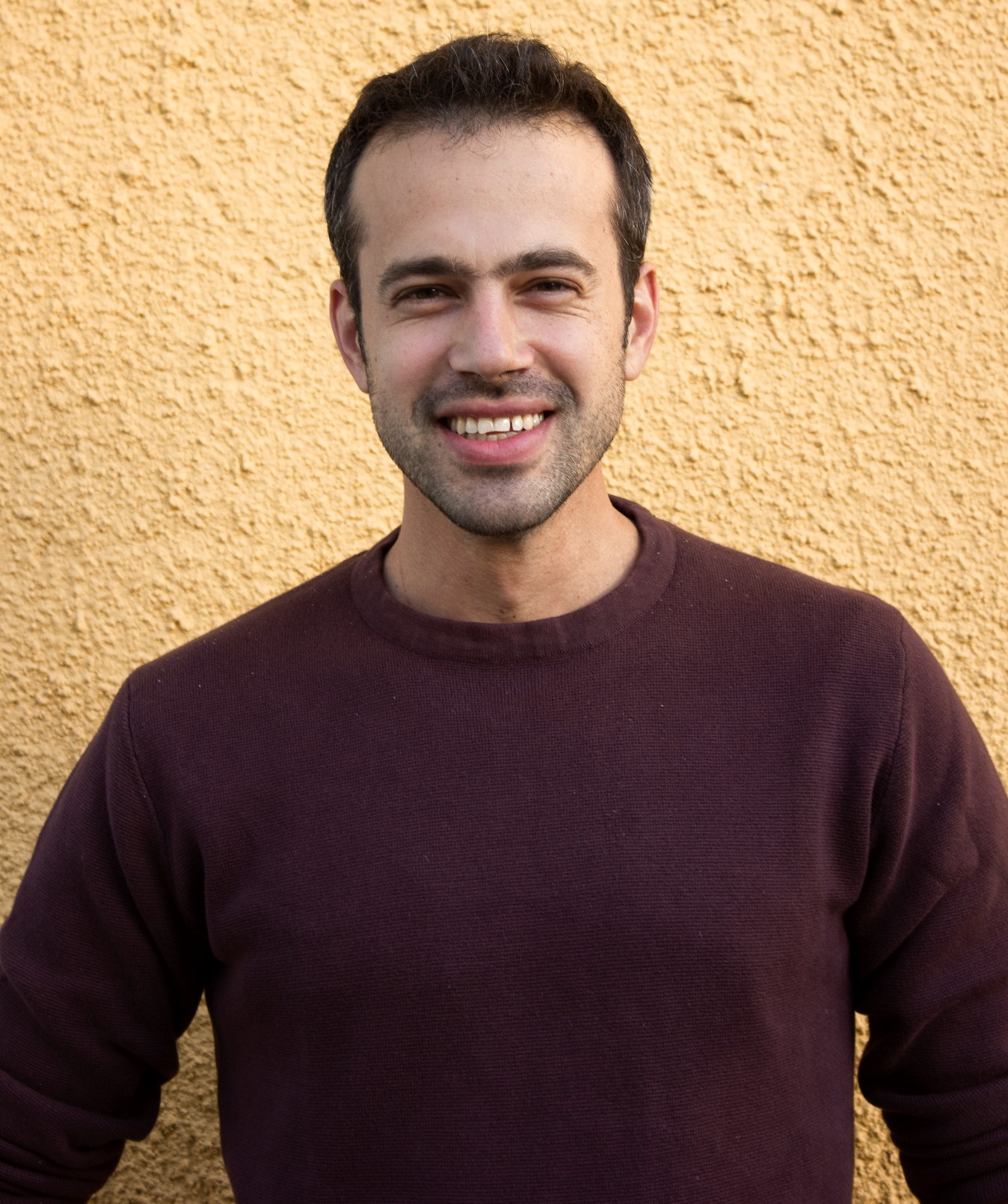
A toolbox for residents
The founders discovered that people across the world are migrating to cities, but due to the high costs some 35 percent of newcomers settle in “second-tier” neighborhoods – like Shapira — remote from the city center and lacking in amenities. However, these neighborhoods can foster strong social ties.
“Our mission is to bring the things they lack, including more quality housing, but also to create something new,” says Gull. “We think we can be a huge business and also have an amazing positive impact in the neighborhoods we operate in, not only for Venn members but for all residents.”
The Venn community in Shapira, formally launched in August 2018, doubled its number within three months and now has more than 200 members.
Most are 25- to 35-year-old singles and couples, including musicians, artists, students, therapists and entrepreneurs. Non-members can use the communal spaces for a fee.
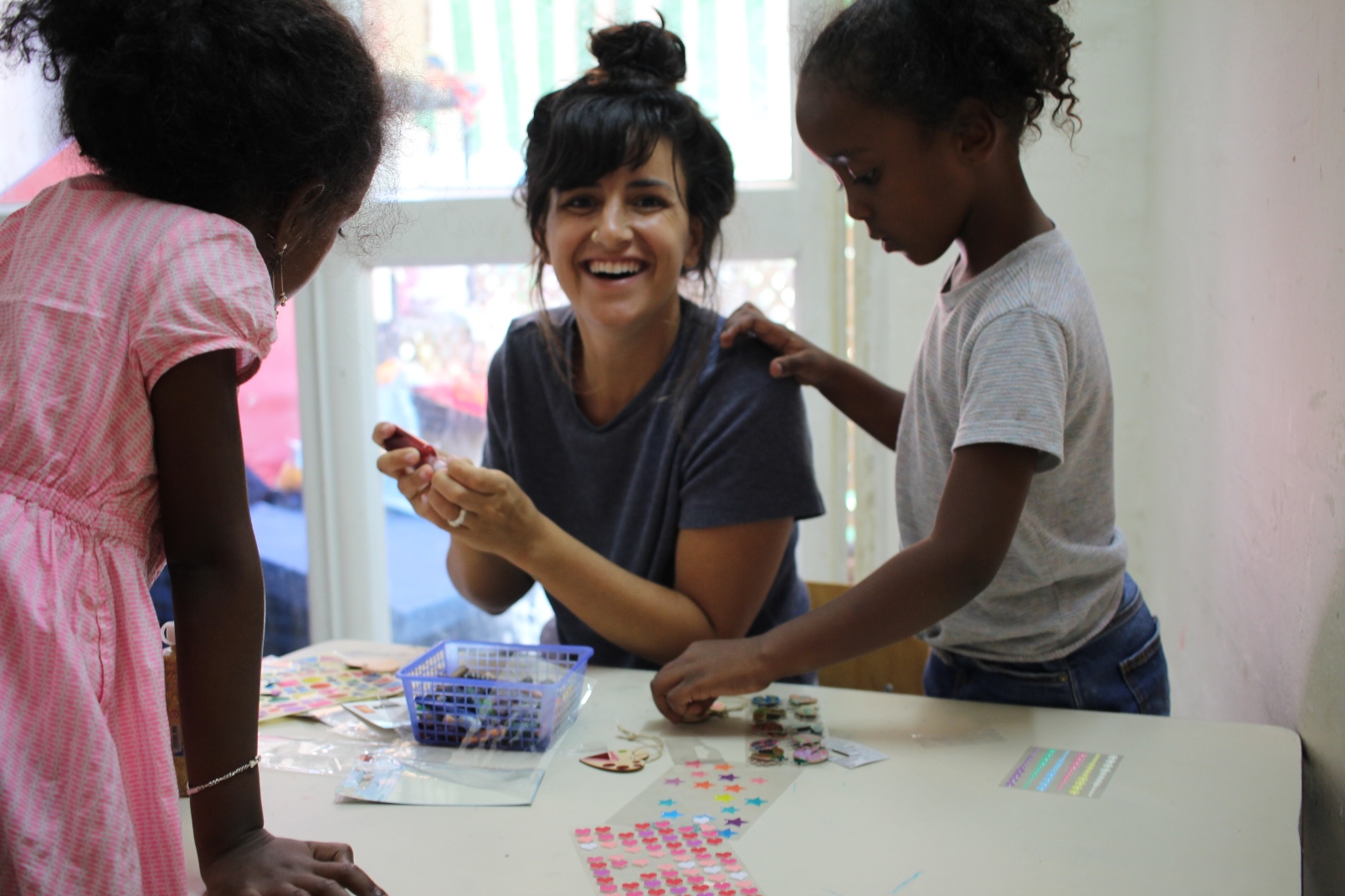
“Last Friday there was a Shabbat pot-luck dinner with 60 people sitting and eating together. You wouldn’t find this in Rothschild,” says Gull, referring to the upscale boulevard where many of Tel Aviv’s startups are headquartered amid expensively refurbished Bauhaus buildings.
With the arrival of more young children in Shapira, Venn spearheaded the founding of a preschool with heavily subsidized tuition for Venn members.
Venn gives several independent businesses in Shapira friendly rent terms, subsidized renovation, help with business plans, and promotions within the community.
“We provide a box of tools for people from the community to fulfill their dreams,” says Gull.
On the Venn website, the founders explain that their goal is “more balanced and meaningful lives” in neighborhoods that encourage “entrepreneurship, fair pricing, creativity and a network of relationships, all stemming from an inclusive and supportive community.”
The Venn diagram of overlapping circles seemed an appropriate symbol for an enterprise based on the overlap of personal and communal spaces.
“We have the ambition to transform how people live in cities,” says Gull.
In 2019 Venn plans to expand in each of the three existing neighborhoods, and by 2030 aims to bring Venn to one million people in 100 cities.
For more information, click here




